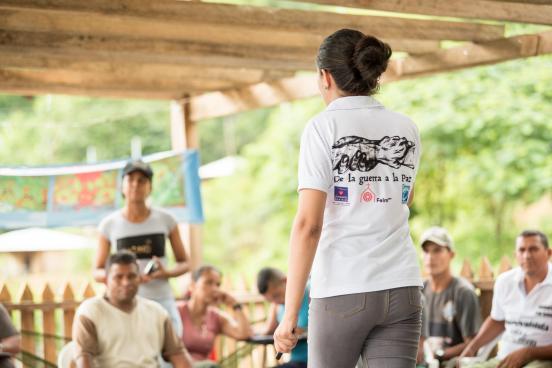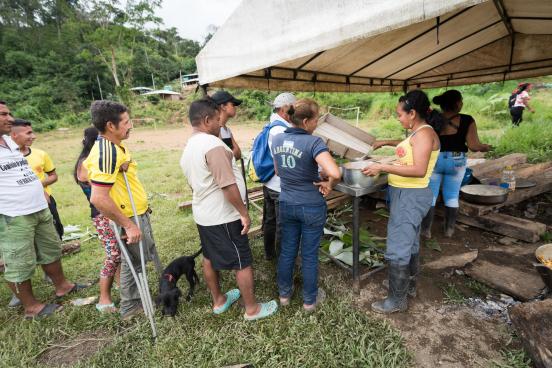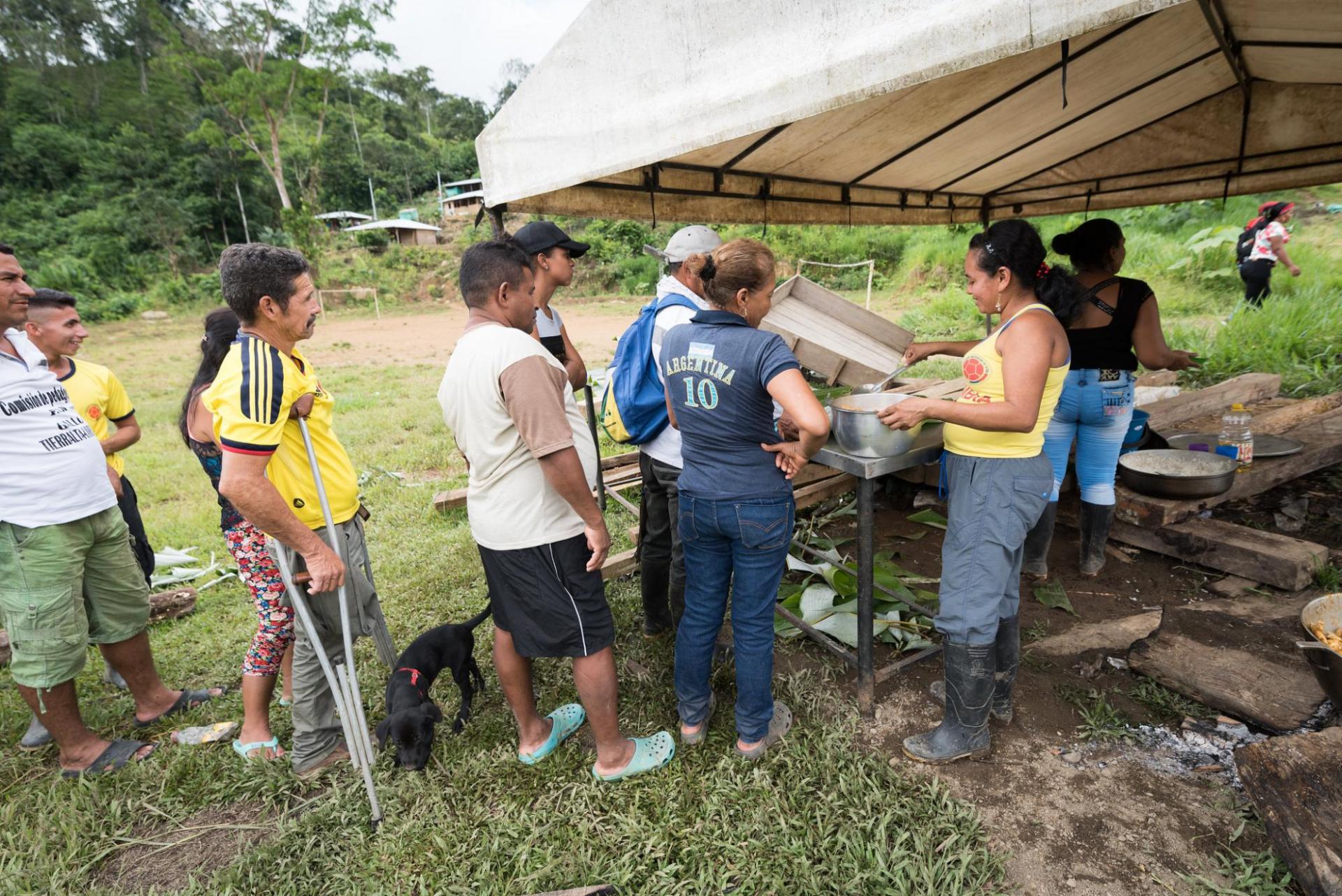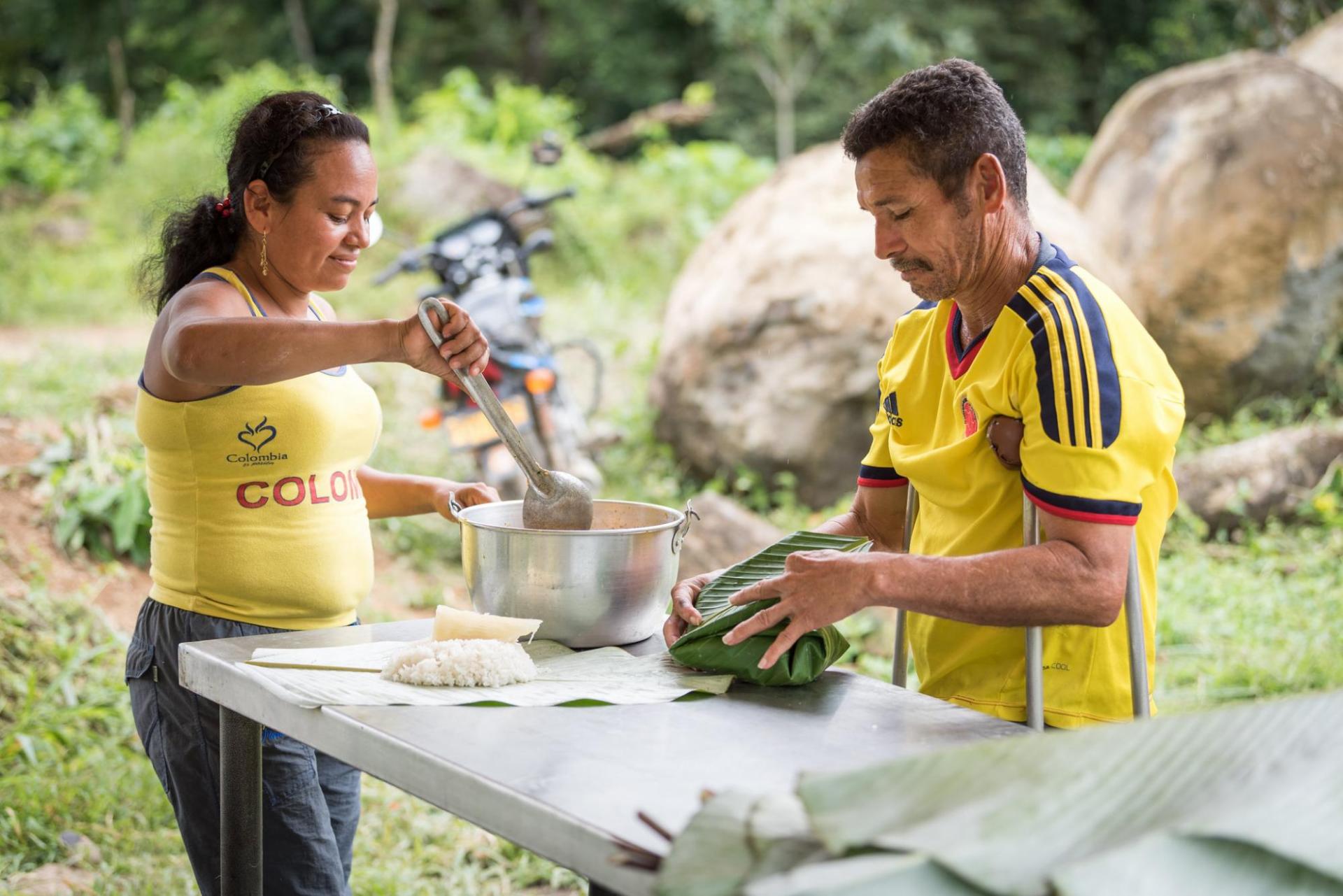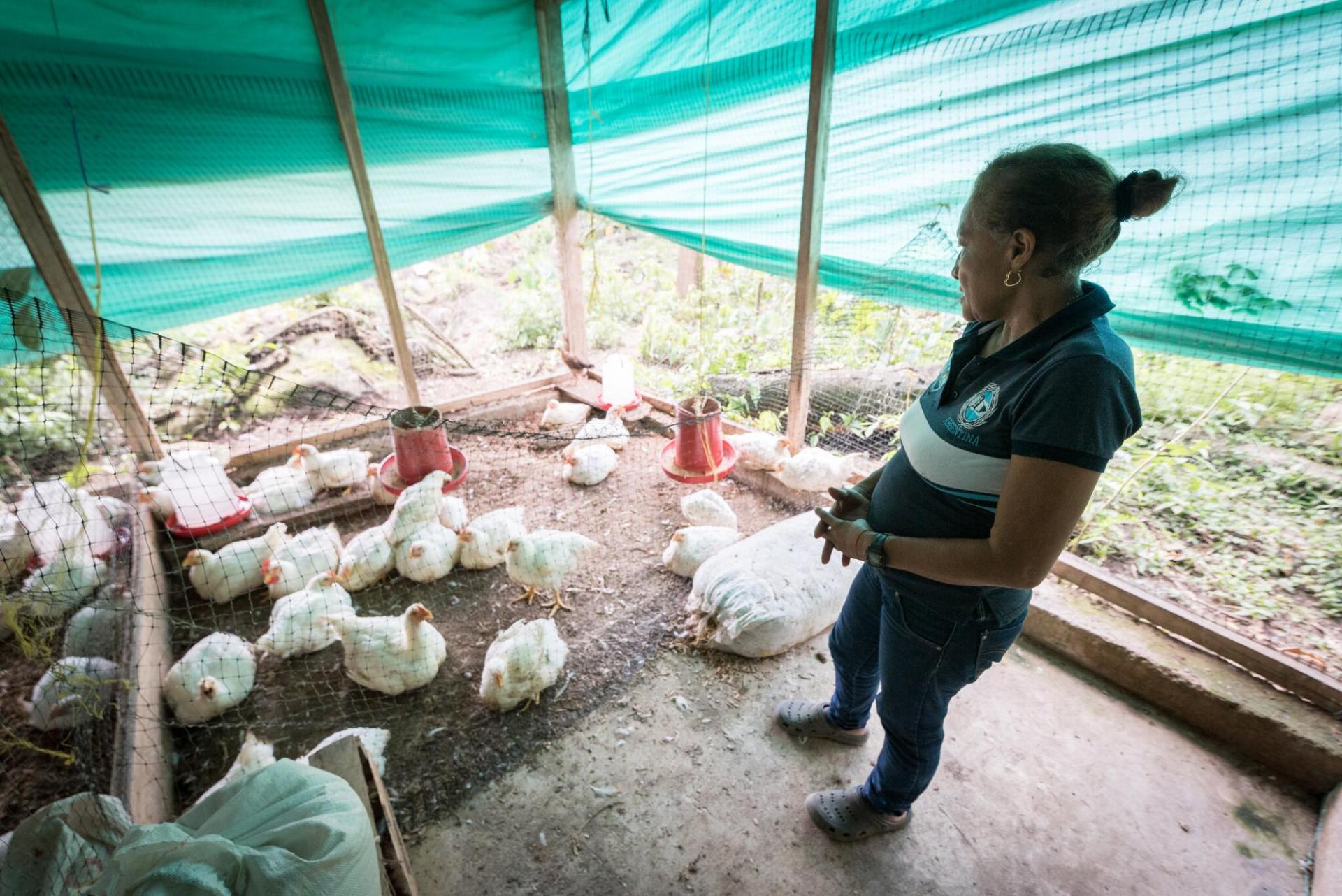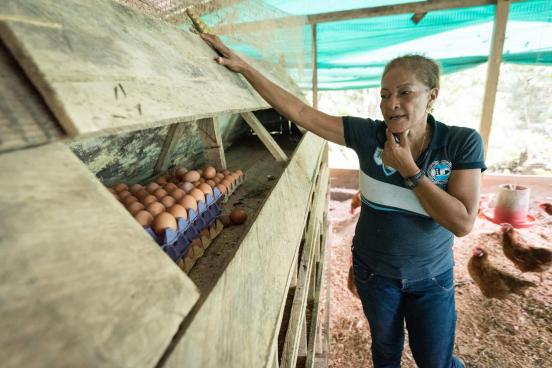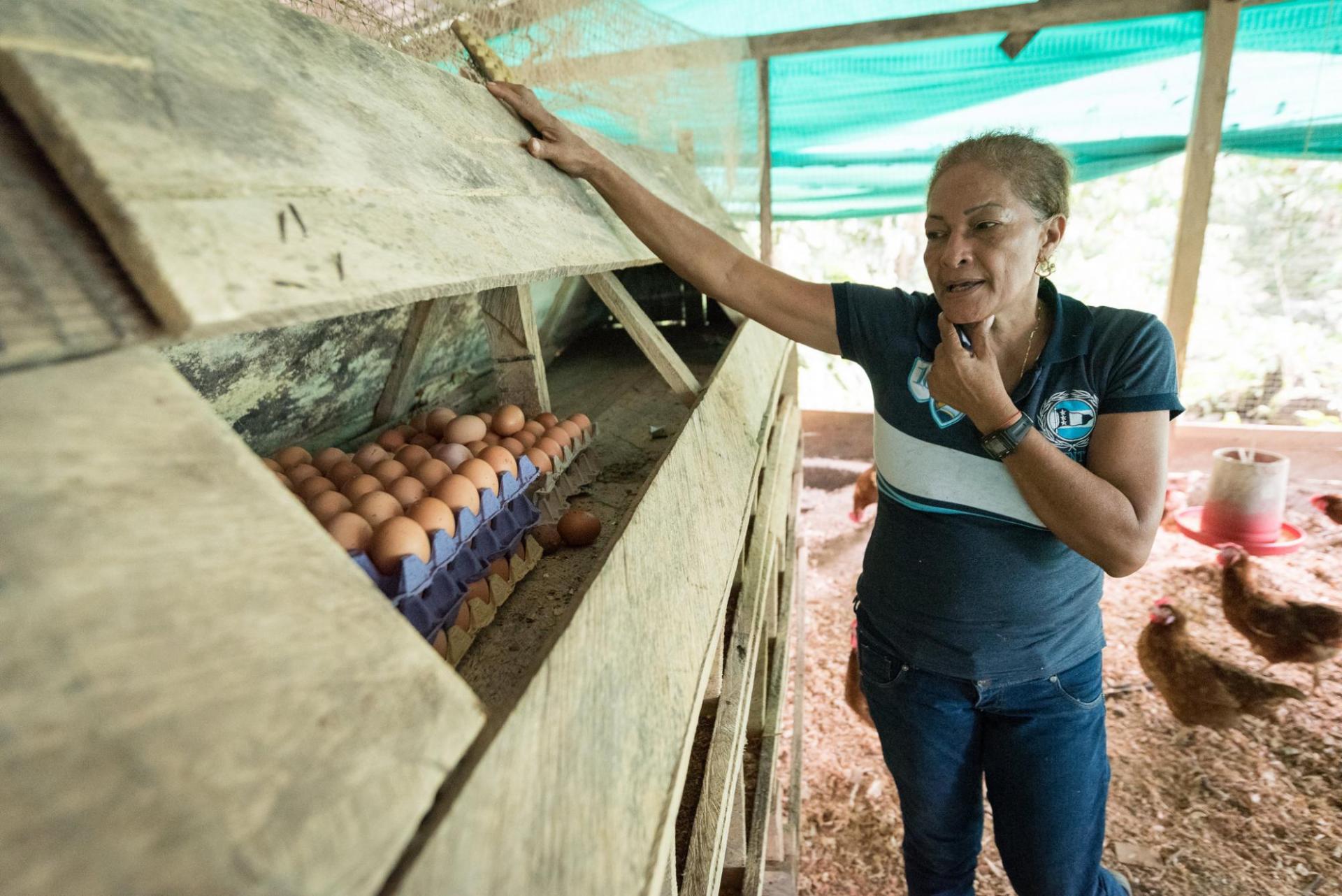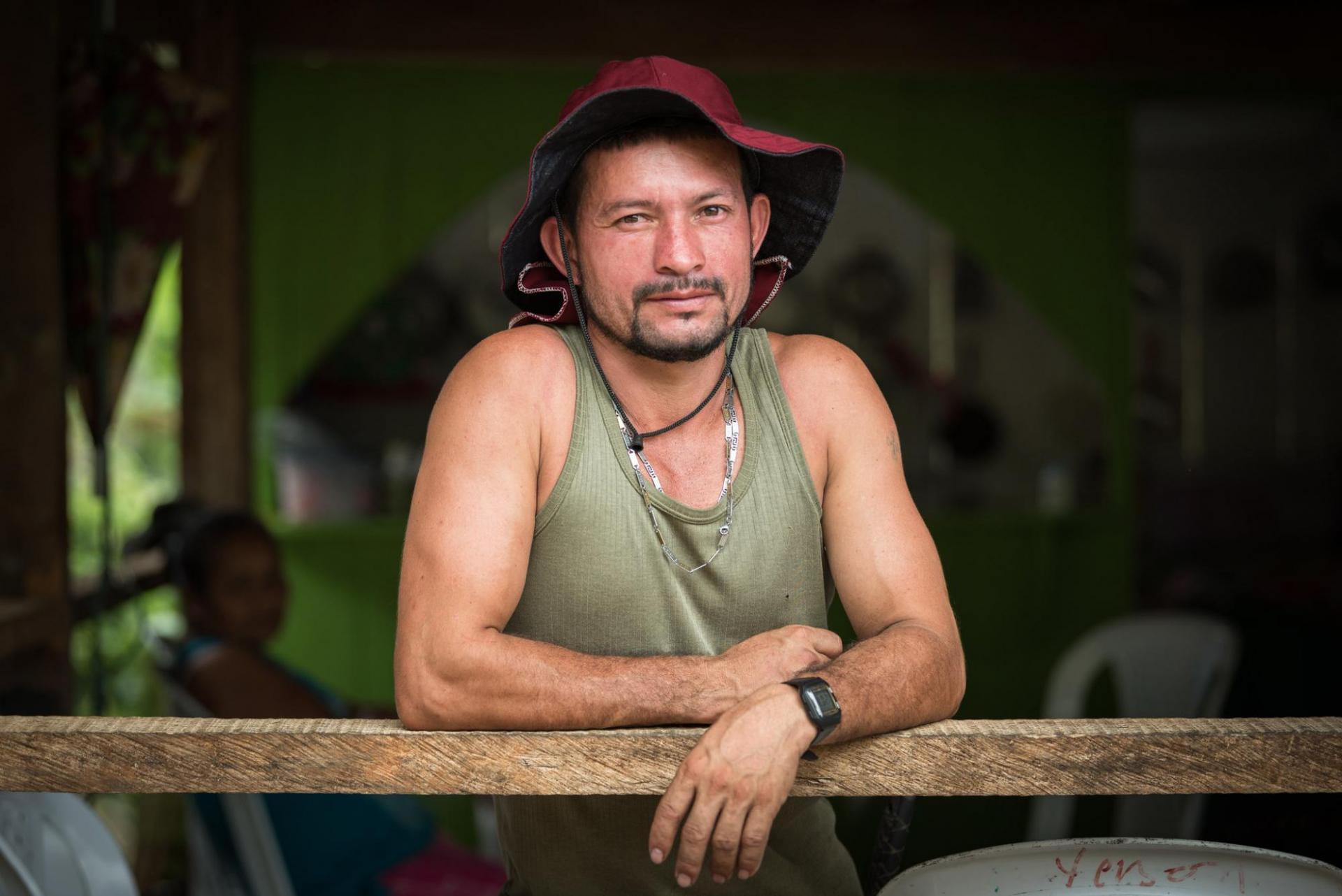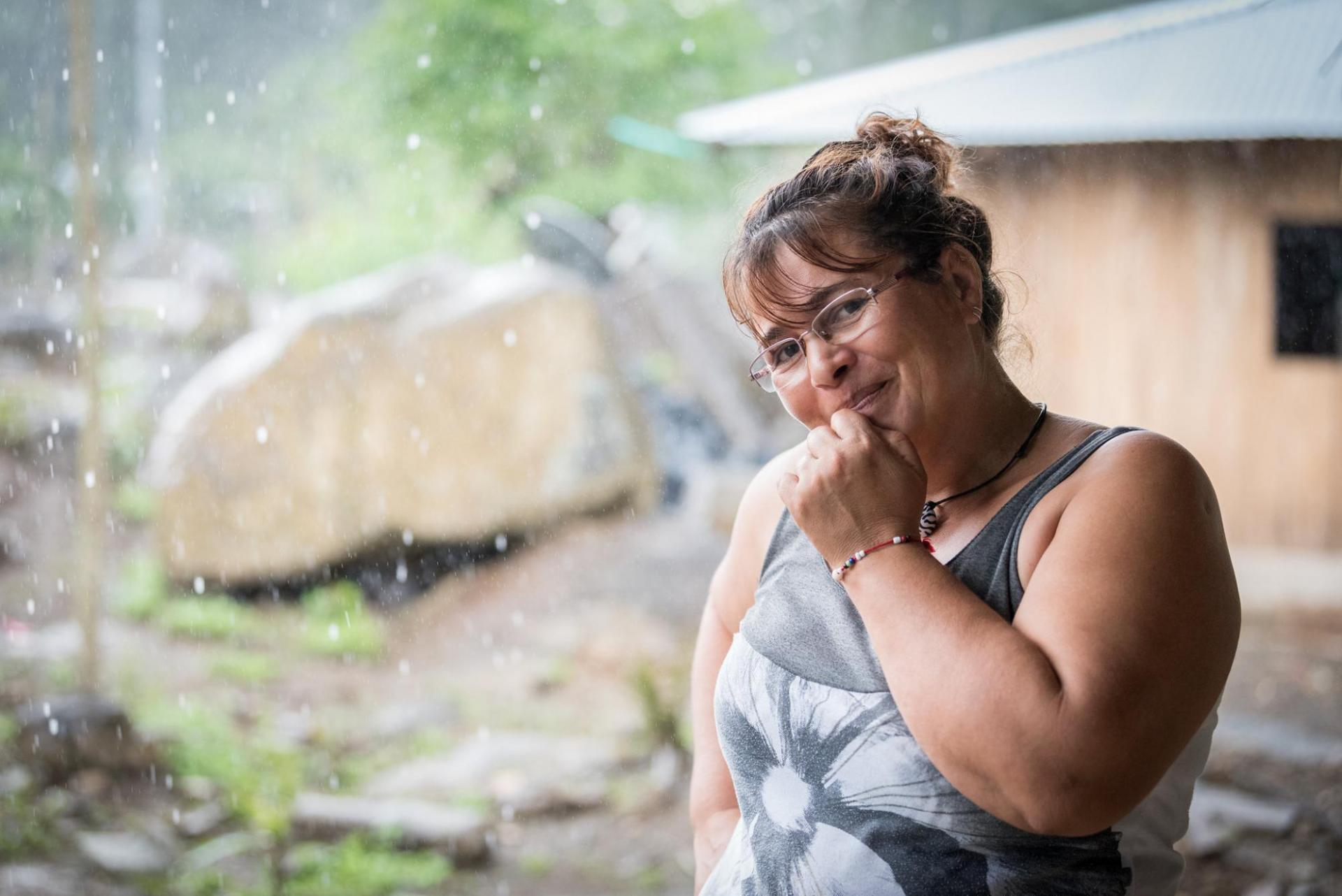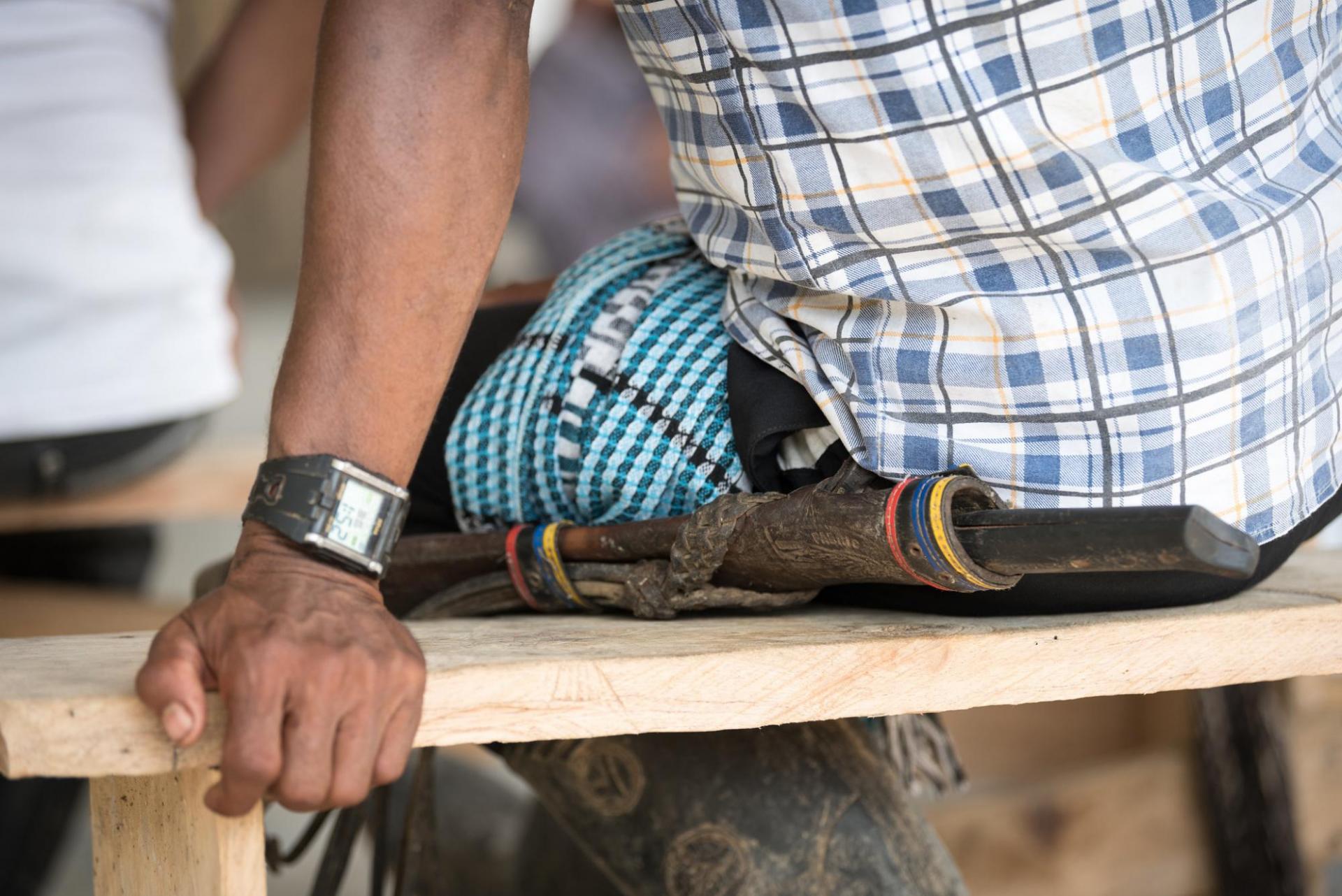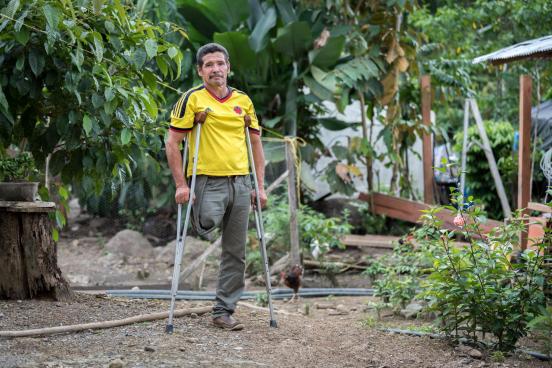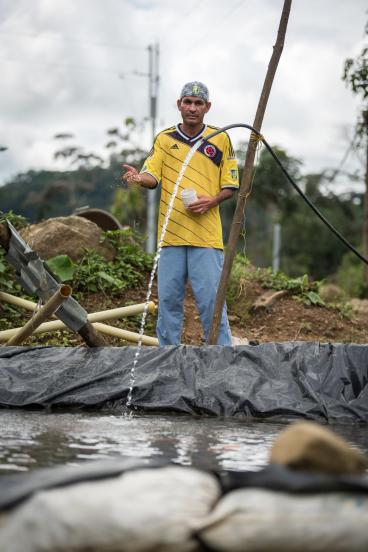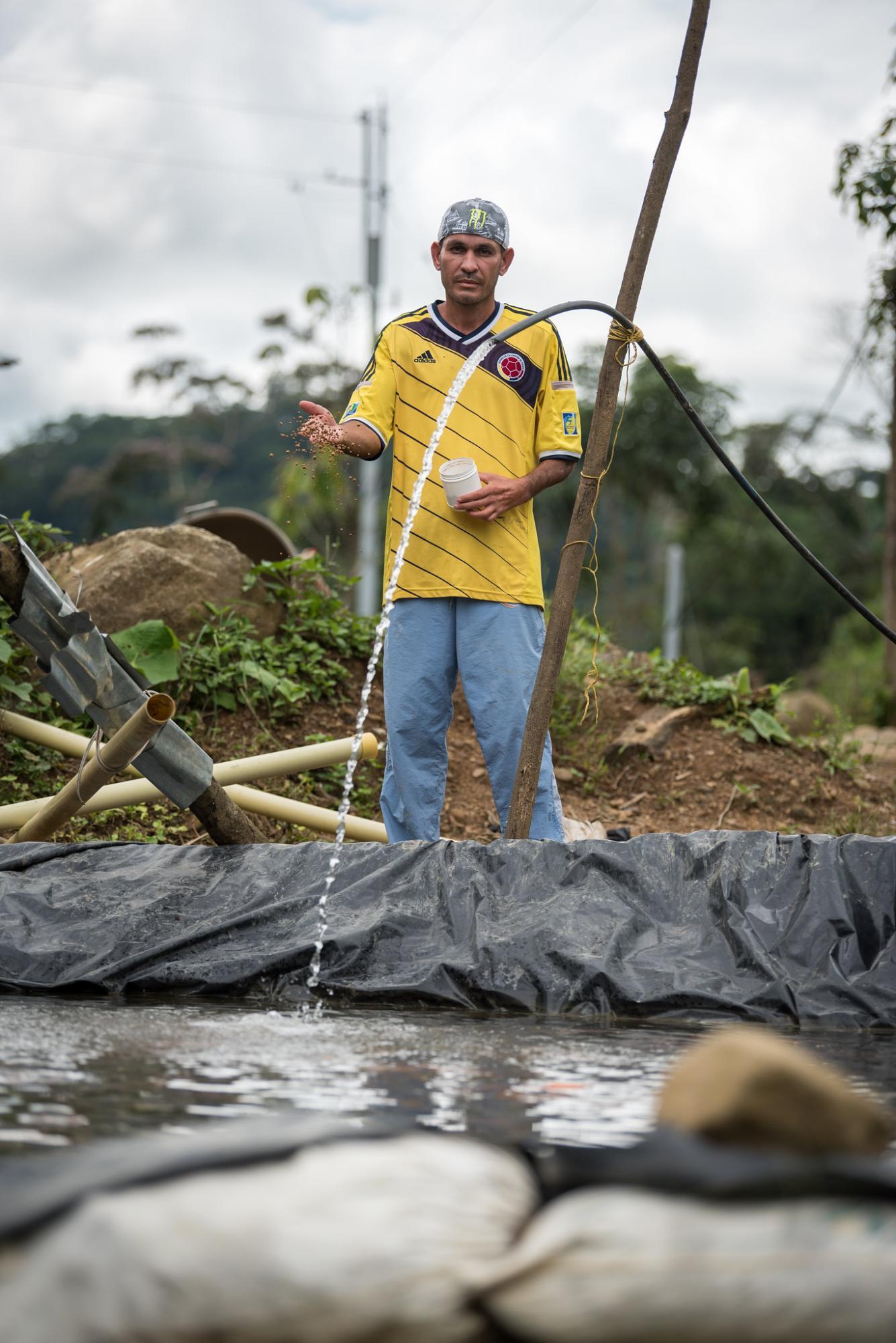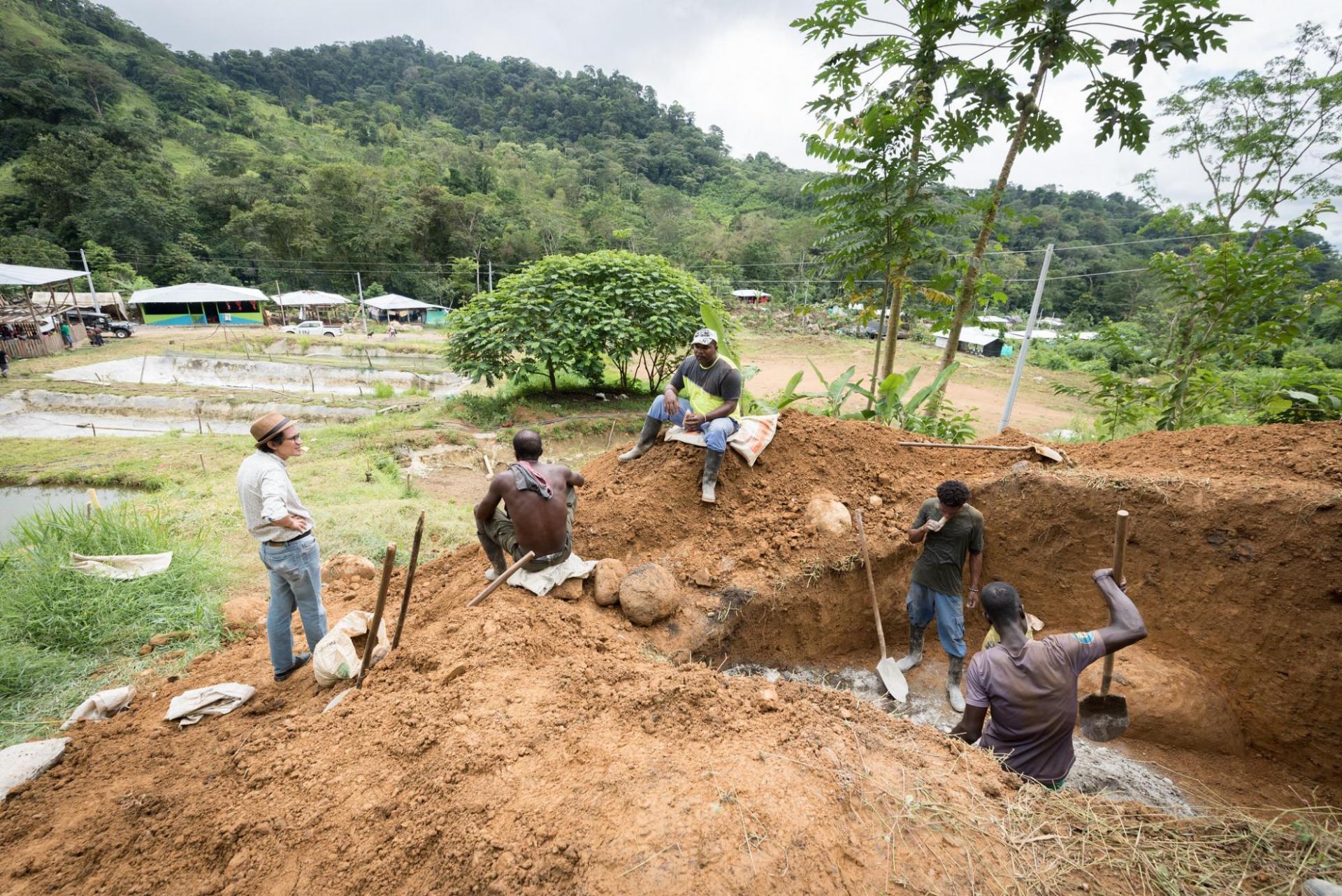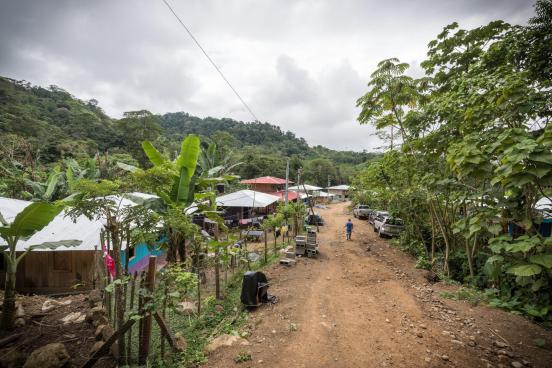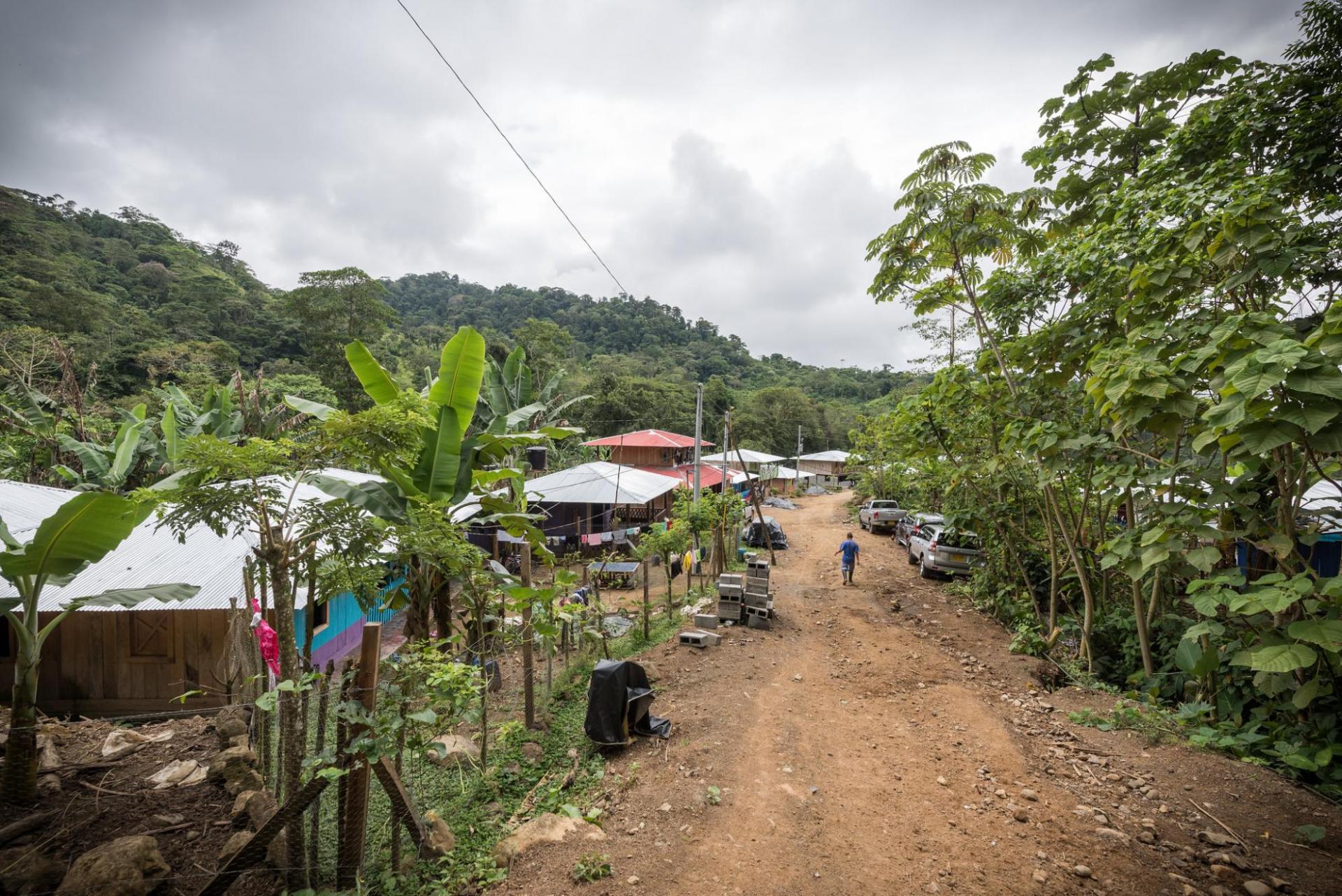SDG 16 Peace, justice and strong institutions
“Sustainable development cannot be realized without peace and security; and peace and security are at risk without sustainable development.”
(Preamble – Transforming our world: the 2030 Agenda for Sustainable Development)
On this page...
About this goal
Peaceful, just and inclusive societies are necessary to achieve the Sustainable Development Goals (SDGs). People need to feel safe as they go about their lives whatever their age, ethnicity, faith, race, sex, sexual orientation or economic status. Therefore, SDG 16 promotes peaceful and inclusive societies for sustainable development; providing access to justice for all; and building effective, accountable and inclusive institutions at all levels.
The goal is to significantly reduce all forms of violence from domestic violence to civil war and international conflicts.
This means working with governments and communities to find lasting solutions to conflict and insecurity.
In order to achieve the goal, we must strengthen the rule of law, promote human rights, reduce the flow of illicit arms and strengthen the participation of developing countries in the institutions of global governance.
For this goal, the UN has set 12 targets. For each target there are several indicators that allow progress in reaching the goal to be measured.
Three of the targets are closely connected to current or potential activities by churches and church-related organizations:
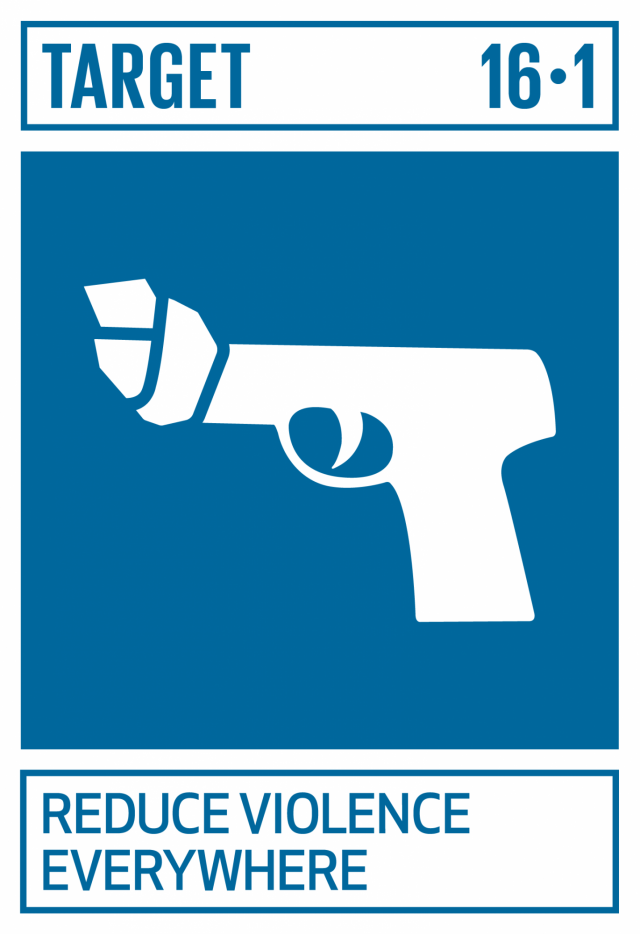
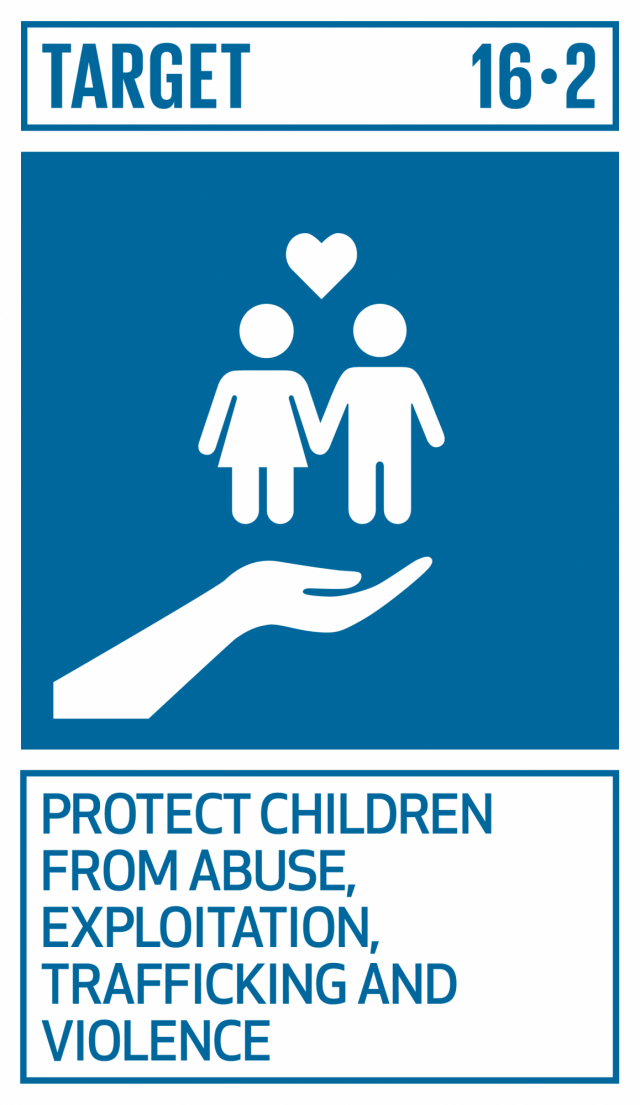
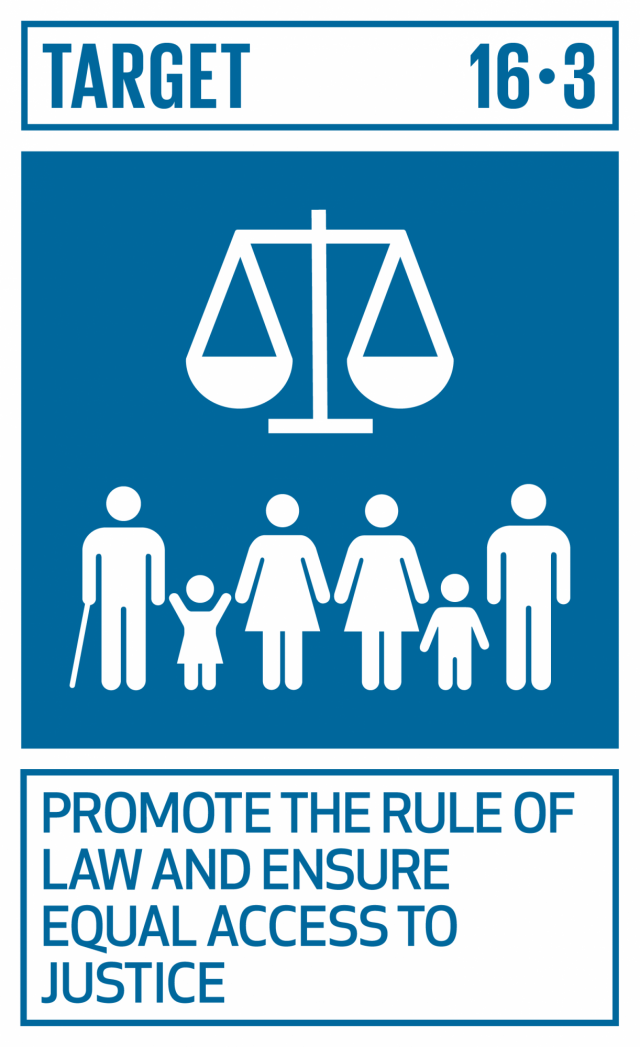
Why does this goal matter to the church?
Peace is God’s plan for all creation.
Through the prophet Isaiah, the intention of God for peace is made clear: “The wolf shall live with the lamb, the leopard shall lie down with the kid…they will not hurt or destroy on all my holy mountain” (Isaiah 11:6,9).
There is no peace where injustice allows violence, exploitation, and abuse.
Striving for peace demands working actively for justice in the world. (Jeremiah 6:13-14, Isaiah 1:17)
The church is called to cooperate with civil institutions when they reflect justice and peace.
The church is called to uncover injustice when they fail in those responsibilities. (Romans 13:3-4; 2 Samuel 12:1-12)
We are invited as “ambassadors of Christ” to participate in the work of building peaceful and just societies. (2 Corinthians 5:19-20)
Where do we find inspiration?
Holy Scripture reveals God’s intentions for peace among all of creation. God created the world – including humans and the natural environment – to live in order and harmony. Sin disrupts this peaceful harmony and threatens the safety and security of humans and all creation by fomenting violence and conflict. This includes abuse, exploitation, terrorism, crime, and war. Ending violence and fostering peace requires developing strong institutions that enforce just laws, protect the most vulnerable members of communities, and hold perpetrators of violence accountable.
We are invited to participate in this work, entrusted with the message of reconciliation and as “ambassadors of Christ,” to bear the reconciliation of God within the world (2 Corinthians 5:19-20.) Those who make peace have a special vocation and commission from Christ, who proclaims, “blessed are the peacemakers, for they will be called children of God” (Matthew 5:9; see also 2 Cor. 5:19-20 and James 3:18).
Peace is God’s plan for all creation. Through the prophet Isaiah, the intention of God for peace among all creation is made clear: “The wolf shall live with the lamb, the leopard shall lie down with the kid…they will not hurt or destroy on all my holy mountain” (Isaiah 11:6,9). Indeed, God is the “God of peace” (Hebrews 13:20) and “the kingdom of God is…righteousness and peace and joy in the Holy Spirit” (Romans 14:33).
Peace, however, is more than the mere absence of outward violence. The call to be peacemakers is the call to be agents and advocates for justice in the world, for “peace is not found, it is built.”1 True peace is founded on justice, and the church’s mandate to pursue peace is made visible in its accompaniment of communities seeking justice within institutions, systems, and interpersonal relationships in society. In its commitment to God and truth, the church refuses to cry “’Peace, peace’ when there is no peace” (Jeremiah 6:14). There is no peace where injustice allows violence, exploitation, and abuse to fester unchallenged. The church’s role as peacemaker is always and at all times woven with the church’s responsibility for seeking justice for all creation.
The work of peace is aided by civil institutions, which are God’s agents of justice in the world (Romans 13:4). When civil institutions reflect justice and peace, the church is called to act cooperatively and responsibly with and through government, the economy, and other institutions. When civil institutions fail in their responsibilities to protect all citizens, hold unjust actors accountable, and provide the conditions for true peace, the church is called to be “a disturbing presence,”2 uncovering injustice and denouncing beliefs and actions that threaten the safety, security, and rights of all.
Christians affirm that God is the ultimate source of peace. As the United States Conference of Catholic Bishops stated in a pastoral letter on “The Challenge of Peace,” in Scripture, “peace is always seen as a gift from God and as fruit of God’s saving activity” (para. 32). Through the covenant, God promises the gift of peace for God’s people Israel (Ezekiel 37:26). In the New Testament, Jesus offers the gift of lasting peace to all people (John 14:27). True peace has its source in God.
In faith, Christians affirm that peace is a gift from God and that the peace that “transcends all human understanding” will be enjoyed perfectly only in God’s future reign. Yet, trusting God’s promise, the church fulfills its vocation here and now to pursue peace through justice, knowing that these efforts will be blessed by the “God of peace,” who desires the well-being of all people and all creation.
What can we do?
Churches and church-related institutions have a long record of working to respond to God’s call for peace and justice. The following stories and study resources offer a sample of responses that will inspire your reflection on how you might get involved.
Example: Building peace in post-conflict communities in Colombia
In Colombia, the Evangelical Lutheran Church (IELCO) is implementing a project in the small agricultural village of San José de León, that aims to integrate former FARC combatants and their families into the community. Read more
The self-assessment tool created as part of the Waking the Giant initiative is designed to help you assess the connection between your current activities and this goal. You may not realize just how much you are already doing!
The process of completing the self-assessment questionnaire and reviewing the results will point to how you might deepen your involvement or, if you are not yet doing directly-related work, it will open up possibilities to explore.
Where can we find information and support for our work?
There are many resources and potential partnerships available to help you meet your program objectives. Most of the following suggestions come from churches and church-related organizations. We welcome your ideas! Contact us at [email protected] and we will share your suggestions.
- Information, training and study resources - There is a growing number of insightful and informative books, blogs, ad websites to aid your ongoing learning and discovery of the themes of faith, peace, and justice.
More about SDG 16 (globalgoals.org)
LWF Peace Messengers Training Manuals
- Worship and reflection - There is a range of resources on the themes of justice and peace for use in worship, meditation, and studies linked to the liturgical seasons.
Mennonite World Conference: Peace Sunday 2018 Worship Resources
- Inspirational stories Many churches and church-related organizations are posting stories of programs and events created as part of efforts to reach the goal of creating the peaceful, just and inclusive communities that nurture sustainable development.
Colombia: Churches accompany ex-combatant communities through delicate peace process
Ethiopia: Many partners, one objective: peace
Thursdays in black campaign - Towards a world without rape and violence (WCC)

